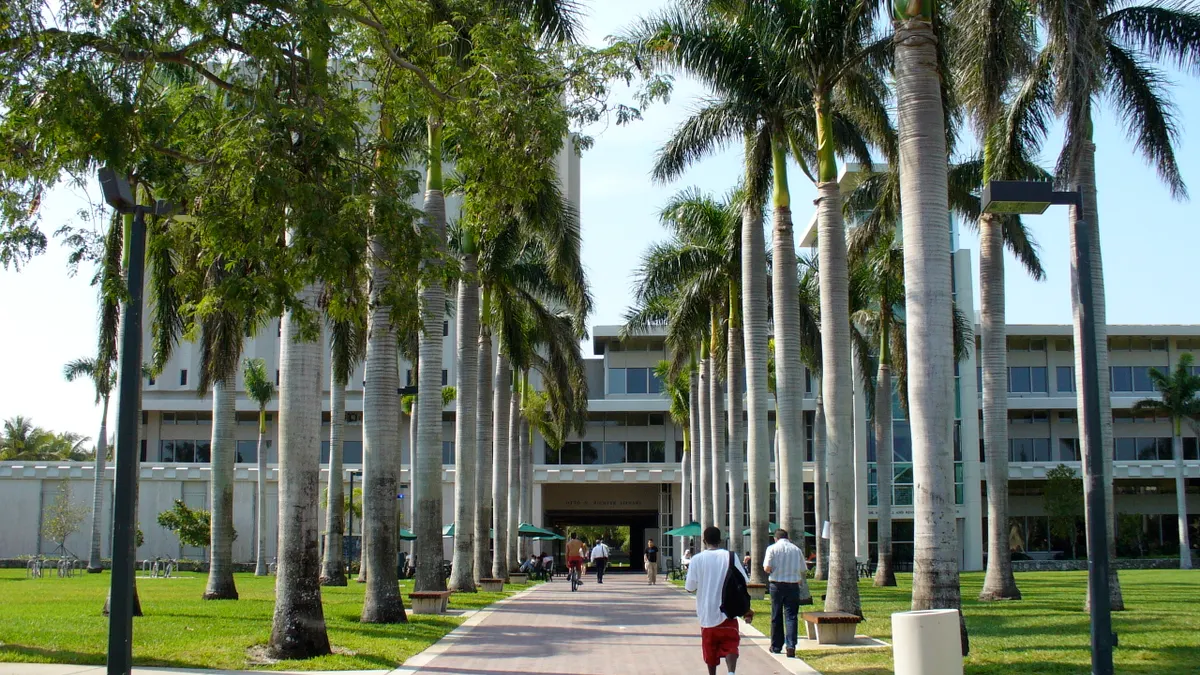Dive Brief:
- Fifteen nonprofit colleges in Florida will keep access to a popular state grant program after a legislative proposal that threatened their eligibility failed to make it into the final fiscal 2026 budget.
- In April, state House legislators sought to impose tighter restrictions on the Effective Access to Student Education program, which offers up to $3,500 to Florida residents enrolled as full-time undergraduates at private nonprofits in the state.
- But the proposed performance and affordability requirements raised concerns when higher education leaders said they would disqualify over a dozen of the state's private, nonprofit colleges — and their thousands of students — from receiving EASE funding.
Dive Insight:
The final Florida budget reflects the state senate's language on EASE and did not enact new program eligibility restrictions.
Almost 38,000 Florida students will qualify for EASE funding in fiscal 2026, up from just under 36,000 the year prior, the state budget estimates.
That number would have been more than halved had the state House's version of the budget been approved.
Almost 22,000 students would have lost access to EASE funding due to their college not meeting the proposed criteria, according to the Independent Colleges and Universities of Florida, an association representing 30 private colleges in the state.
ICUF argued that the change would disproportionately hurt non-traditional and low-income students and could force them to drop out or leave Florida.
Affected colleges would have included the University of Miami and Florida’s three private historically Black colleges, the association said.
Individual college leaders also spoke out about the potential effects the measures would have had.
Barry University President Mike Allen told WLRN the loss of eligibility for the EASE program would add a nearly $4 million gap in his institution's budget.
Keiser University Chancellor Arthur Keiser raised concerns that, without continued access to EASE, the state's workforce demands could worsen.
"Cutting the EASE grant not only harms students, it risks slowing the talent pipeline that powers our state’s future — a potentially disastrous outcome given Florida’s continued growth," he wrote in an April op-ed for The Palm Beach Post.
Keiser joined ICUF in urging the public to call on their representatives and push back on the proposal.














